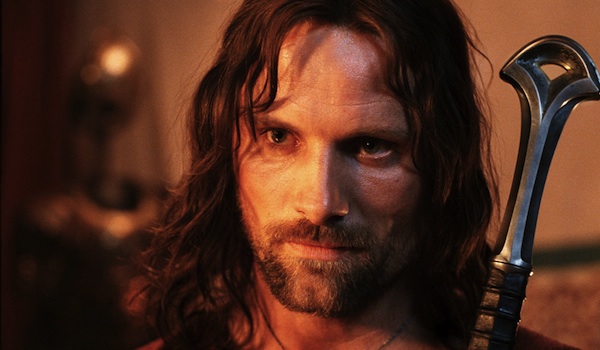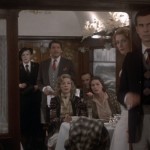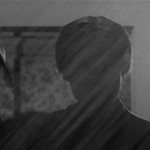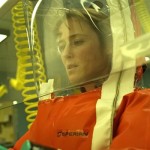The Lord of the Rings: The Return of the King Review
After two phenomenal films, Peter Jackson and the crew for “The Lord of the Rings: The Return of the King†had a lot to live up to. It’s hard to believe what an accomplishment this film is. What could they do that wasn’t in the first two movies? I asked myself that several times in the months between the second film and this one. But “Return of the King†delivers in every way. The battles are visually impressive, the acting is as good as ever, and the Jackson’s direction doesn’t falter once. He knows what he was doing, and he was rewarded, after this film swept the Oscars, with an unheard of amount of directorial freedom for his future endeavors.
The film opens with a prologue outlining the demise of Gollum/Smeagol (Andy Serkis). He kills a friend to obtain the One Ring, which consumes him. He moves into a mountainous cavern and becomes totally unrecognizable as the Ring poisons his mind. Cut to present-day Middle Earth. Frodo (Elijah Wood), Sam (Sean Astin), and Gollum are on their way to Mordor, but Gollum intends to lead them into danger, so he can reclaim the Ring for himself.
Meanwhile, Merry (Dominic Monaghan) and Pippin (Billy Boyd) are under the protection of the Ents, who have claimed victory over Isengard. They are met by Gandalf (Ian McKellen), Aragorn (Viggo Mortensen), Legolas (Orlando Bloom), and Gimli (Jonathan Rhys-Davies) who have returned from the battle at Helm’s Deep. In the wreckage of Isengard, Pippin discovers a Pilantir, which is sort of like a basketball-sized device used for communication with Sauron. When Pippin grabs it, he sees Sauron’s plan: to destroy Gondor, the place where Aragorn is the heir to the throne. But Sauron also sees Pippin and believes he is the hobbit in possession of the Ring.
So Gandalf and Pippin ride to Gondor to warn Denethor (John Noble), the steward of Gondor, that war is fast-approaching. Denethor, however, is grieving the death of his son, Boromir. He’s also full of suspicion toward any that would align with Aragorn, who could displace him from the throne. When Gandalf advises him to seek help from Rohan, Denethor refuses. Meanwhile, Theoden (Bernard Hill), the King of Rohan, doesn’t wish to aid Gondor, for they did not come to the aid of Rohan in it’s time of need. It seems the only hope lies with Aragorn, whose nobility gives him access to some assistance that could end the war in the Fellowship’s favor.
Perhaps the most successful aspect of “Return” is its ability to balance incredible action with powerful emotion. While I’m not sure the major battles are as good as the Helm’s Deep battle in “The Two Towers,” but they are close. They are also longer and more varied. This is probably the most action-packed film in the series; it’s also definitely the most emotional. Perhaps because we know we won’t be spending any more time with these characters, but this film will have you reaching for some tissues on multiple occassions.
The acting, as in the other films, is terrific. My favorite remains Viggo Mortensen whose Aragorn reluctantly accepts more and more responsibility and becomes more of a leader as the triolgy progresses. It’s one of the most successful character arcs in recent memory. It’s not the most original; we’ve seen plenty of reluctant cinematic heroes over the years (John McClane and Han Solo, for example), but it works because the screenplay doesn’t cut any corners (an advantage of being able to develop a character over three very long films). It also works because Mortensen really sells it. He’s never too enthusiastic about taking control, but he’s also quite forceful on occassion.
Andy Serkis again gives us a layered and totally unique portrayal of Gollum, whose true colors are clearer here than in “The Two Towers.” Elijah Wood and Sean Astin are one-note but effective. Bloom and Rhys-Davies are on hand for comic relief. And, for the third film in a row, Ian McKellen provides an hugely sympathetic portrayal of the wizard Gandalf. Has there been a more likeable or admirable character in the past decade than he?
“Return of the King” cleaned up at the Oscars in 2004. Perhaps the Academy saw this as a chance to reward the whole trilogy (or maybe it’s just because it was so damn good), but the film won every award it was nominated for; 11 in total, including Best Picture and Best Director. It was an unheard of night in Academy history and likely won’t be forgotten (or matched) any time soon.
After “The Lord of the Rings” fever died down, Peter Jackson went on to direct his dream project, a remake of “King Kong.” He was permitted a great deal of freedom for the project, which wasn’t a problem. The project was a success by most standards. The same can’t be said for the next film Jackson directed. While the same hands-off approach was in place for “The Lovely Bones,” most deemed it a disaster (although not by me), and it won’t be making its bloated budget back. We’ll just have to wait and see how much of an impact “The Lovely Bones” will have on his career and how much control Jackson will have on his next project.
But nothing Jackson will ever do will likely top “The Lord of the Rings.” Those involved in the project should be proud; those who watch should be thankful for Jackson’s vision and storytelling ability. It’s a cinematic masterpiece of the highest order.















